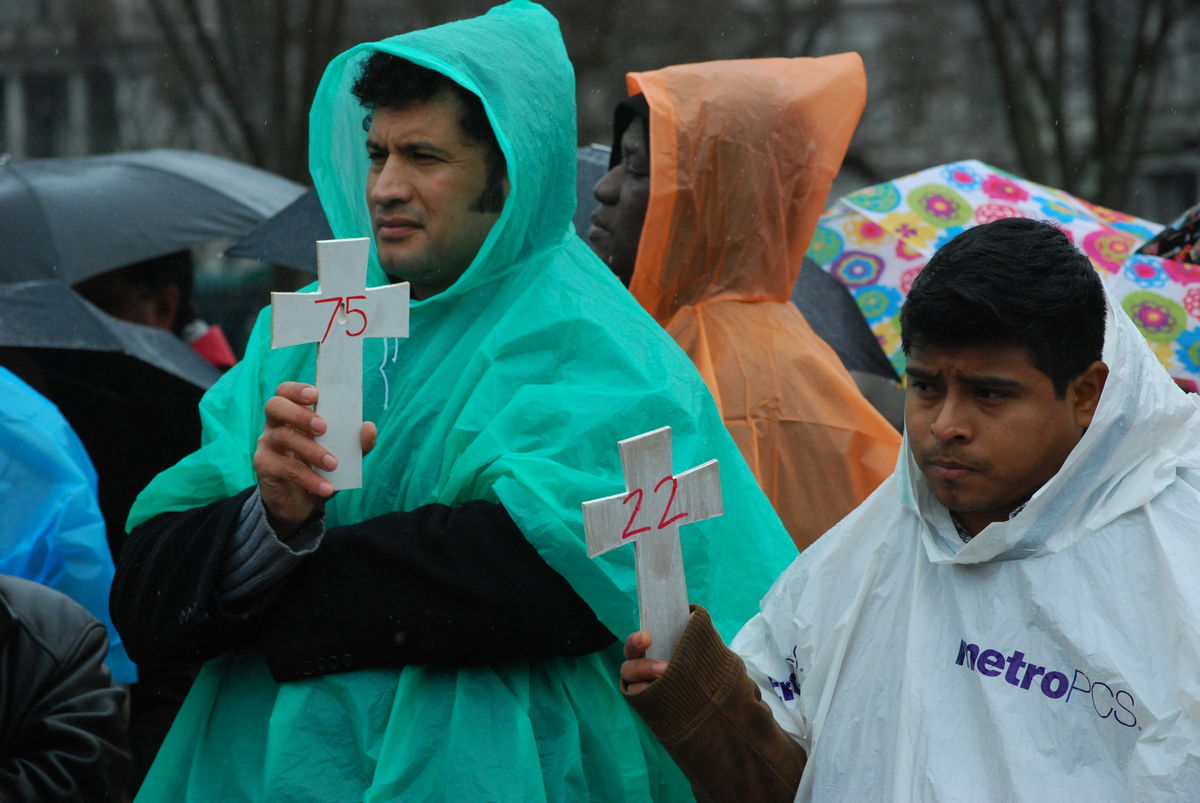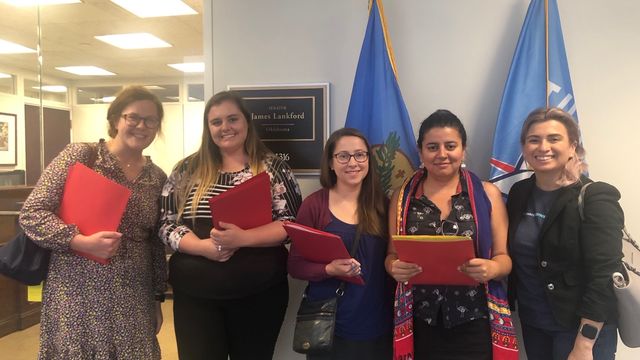Global Migration
Moving from one place to another is a protected human right.

Human beings have always moved from one place to another. The freedom to move is so precious that it is a protected human right.
Immigration is when a person freely chooses to move to another place. It might be temporary or permanent. Immigrants often move to resettle as a family, to fulfill a job placement, or as a reprieve from situations of injustice and war.
Global migration as a factor in the quest for justice is a major priority of The United Methodist Church
United Methodist Book of Resolutions, 6028But, not all movements are chosen freely. Some people, including whole families and communities, have been forced to move. Some have been forced to move because of human trafficking. Human trafficking is a modern-day form of slavery.
Nearly one percent—or 65 million people—of the world’s population is affected by forced displacement. It is a crisis of global proportions and immense moral and ethical implications.
Forced migration, in all its forms, is a denial of human dignity and a violation of human rights.
Injustices arising from historical and contemporary colonialism and racism continue today to ravage the lives of immigrants and refugees. They experience many forms of racial discrimination, xenophobia and intolerance in their countries of transit and destination.
What the Bible and The United Methodist Church Say:
Resource inequality and the unequal development of nations resulting from human-made and natural disasters have caused massive displacement and forced migration. The United Methodist Church says, “In order to provide basic needs such as food, clothing, shelter, education, health care, and other necessities, ways must be found to share more equitably the resources of the world.” (Social Principles, ¶163.E)
“Global migration as a factor in the quest for justice is a major priority of The United Methodist Church as a denomination that is global in vision, mission and ministries. This concern is rooted in both a biblical mandate for justice and a commitment to the future of the church.” (Book of Resolutions, 6028)
Radical hospitality, rooted in our biblical understanding of God’s abundant love and provision, helps us to imagine a world of plenty, rather than scarcity, and a world of welcome, rather than fear.
Hebrews 13:2 says, “Do not neglect to show hospitality to strangers, for by doing that some have entertained angels without knowing it.”
What You Can Do:
- Celebrate Migrants Sunday in your church on the first Sunday of Advent. Learn more here.
- Partner with a refugee resettlement agency in your area and find out how your congregation can support and be involved. Church World Service is our United Methodist Church denominational partner organization in this work.
- Learn more about the state of global migration. Do a group reflection on what you learn and discover ways to connect and help. Engage the Bible and our Social Principles and Book of Resolutions in these reflections.
- Discuss how your local church can be a welcoming church for migrants, refugees or asylum seekers. Lead a small group in reading The Intersections of Migration, Human Rights and Development Justice: A Resource Book of Churches Witnessing With Migrants, edited by Liberato C. Bautista and Mervin Sol H. Toquero.
- Celebrate International Migrants Day, usually a day in December of every year. You may want to reflect on the question, “What would a day look like without migrants?”
Related Resources
For more information on global migration, visit:
- A Day Without Migrants
- Justice for Our Neighbors
- Church World Service
- Churches Commission for Migrants in Europe.
- Asia Pacific Mission for Migrants
- All Africa Conference of Churches
- United Nations Office of the High Commissioner for Refugees
- A statement from the Action by Churches Together Alliance on refugees and migrants.
- Churches Witnessing With Migrants
- United Methodist Book of Resolutions:
- 6025, Globalization and Its Impact on Human Dignity and Human Rights
- 6028, Global Migration and the Quest for Justice
- 6032, Eradicating Modern-day Slavery
- 6072, United States-Mexico Border
- 6073, Border Ministry in the Western Jurisdiction
- 6102, Violence against Children in Latin America and the Caribbean
